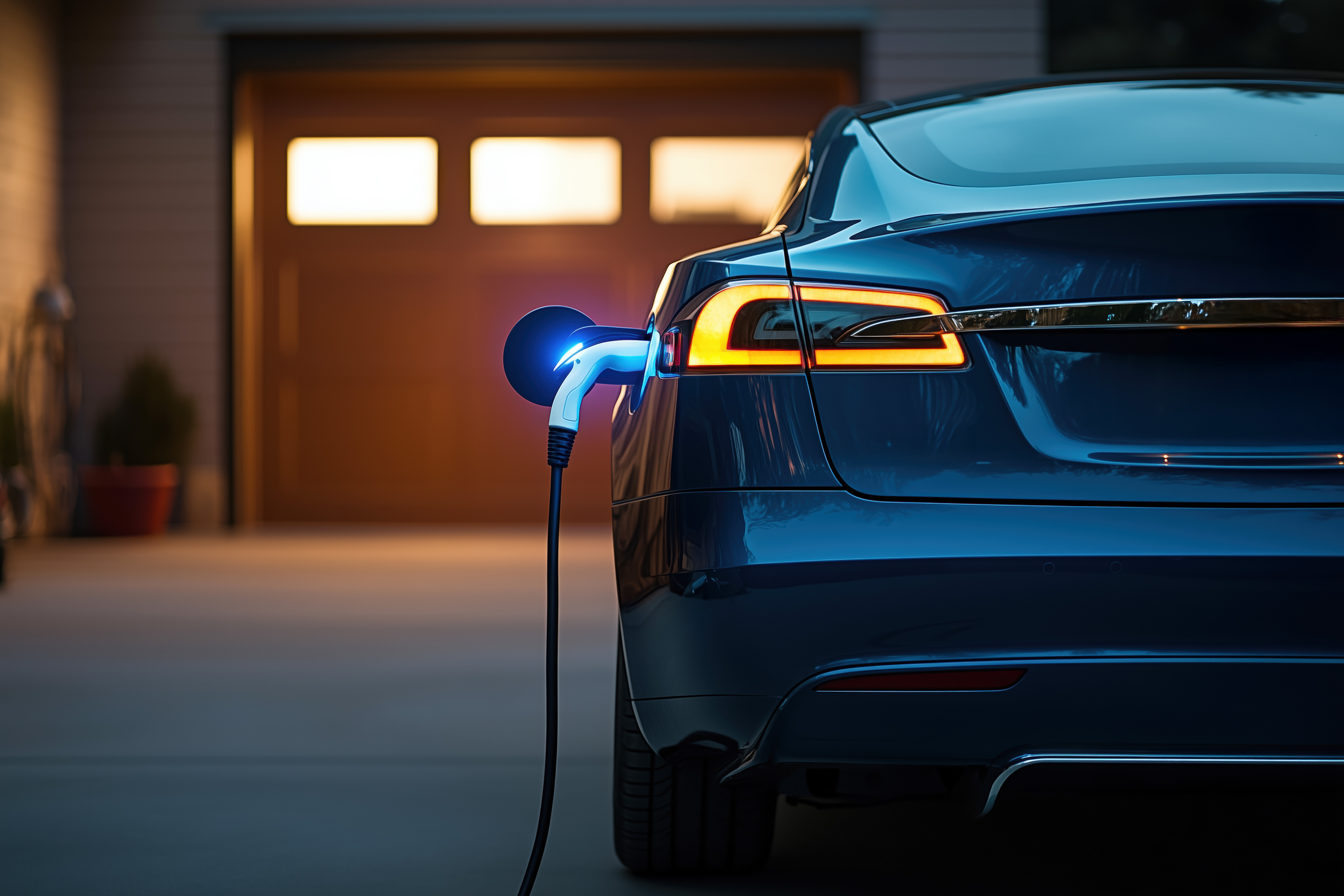Interest in electric vehicles is on the rise, and the growing number showing up on the roads every year proves it. As more people seek to live greener, the advantages of electric cars, including cutting carbon emissions, provide attractive solutions. Plus, with gas prices often spiking, rechargeable electric car batteries are even more appealing.
But questions remain as you learn about electric vehicles, such as how long does an electric vehicle battery last and how do they stack up against traditional gas-powered cars?
Electric vehicles (EVs) use rechargeable lithium-ion batteries with high energy density that can produce more power than those used in internal combustion engines. The battery powers the entire car and electric motor, eliminating the need for fossil fuels. An electric car battery is an especially big asset for those looking to reduce their carbon footprint (and their gas bills).
If you’re new to the world of EVs, you probably have a lot of questions. As the battery is the main difference between gas vs. electric cars, there’s a lot to learn, like how much time it takes to charge your vehicle and everything about your electric car battery life cycle. We’ve put together a list of common questions to help you understand how electric car batteries work.
{{CTA-EV-to-Solar}}
How Long Does a Car Battery Last?
On average, they last 12 to 15 years or 100,000 to 200,000 miles. However, storage, time, and temperature all play major roles in exactly how long electric car batteries last. The cycle of using and charging your EV battery also contributes to its lifespan. Like any other item, use leads to wear and tear and the eventual need for replacement.
As technology and efficiency improve, battery lifespan and resistance to degradation also increase. In addition, lithium-ion batteries are made up of a series of complex cells, which means that often only part of the whole battery needs to be replaced.
Electric car battery replacement costs change over time and have continued to decline. However, the price can vary widely, depending on a multitude of factors, such as the size and model of the car and kilowatt-hours (kWh) needed to power the vehicle.
Fortunately, you can take steps to prolong your electric car battery’s life. A good rule of thumb: Avoid extremes. Don’t leave your battery fully charged or at a low level when your car is sitting for extended periods of time. Severe temperatures—either hot or cold—also take a toll on battery longevity. Park your car in the shade or in a garage when possible.
Your battery’s daily longevity will also depend on the speed and type of charging point and the size of your battery. When it’s time to charge your vehicle, make sure you budget enough time based on the specific needs of your EV.
How Are Batteries Made for Electric Cars?
The most common electric batteries for cars are lithium-ion—with a high energy density compared to weight, similar to those used in phones and other handheld devices. These are used to create batteries comprised of thousands of cells. Once the electric vehicle battery packs are complete, they are packaged and sent to car manufacturers to place in the bodies of EVs.
How Much Does an Electric Car Battery Cost?
There is no set electric car battery cost, and prices change with time and technological advances. It’s encouraging to note that, as advancements in battery manufacturing continue, costs will go down as capacity and efficiency increase.
Electric car battery charging stations are becoming more popular and available across the country, and while you can find free options, most charge by the kilowatt-hour or offer subscriptions. The costs differ depending on location and demand, the individual provider, the charging level, and other factors.
It is typically more affordable to charge your electric vehicle battery at home. Exploring home options like the electric vehicle plans with Gexa Energy can potentially save you money in the long run. Home charging also offers the ability to charge during off-peak hours, which can help cut costs, too.
Related: Cost of Charging Your EV
Are Batteries in Electric Cars Recyclable?
If worries over electric car battery disposal pollution are a barrier to your interest in pursuing an EV, you may have questions about electric car battery recycling. Luckily, the lithium-ion batteries used for electric cars are recyclable. Designated recycling plants take batteries that no longer have a charge, shred them, and sort out the metals, which are then repurposed.
Some battery sellers have programs for accepting old batteries and offsetting the price of your new one. There are also non-profits that will take an old electric car battery off your hands and handle the recycling for you.
Electric car batteries that are no longer deemed functional for driving can be used to help support the grid when they still have a charge left. They can aid the flow of electricity by storing power, giving them a new, sustainable purpose.
Choosing to drive an electric vehicle is one step on the path to a greener lifestyle. Energy providers, such as Gexa Energy, offer renewable energy plans that are powered by 100% green energy.






































